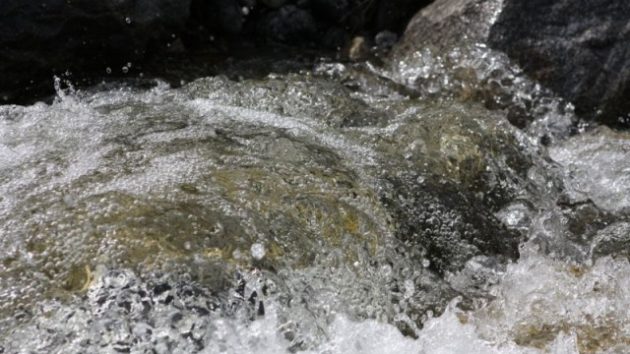Full Stream Ahead: Why EPA’s Water Rule Goes Too Far
The Obama administration didn’t listen. Instead, it went ahead with its regulatory overreach over America’s waters. This worries farmers, ranchers, and other businesses.
EPA and the Army Corps of Engineers released their final Waters of the United States (WOTUS) rule–known as the “Clean Water Rule” in EPA lingo–that claims jurisdiction over vast swaths of the country.
In a statement EPA Administrator Gina McCarthy claimed, “This rule will make it easier to identify protected waters.” In reality, the rule does this by claiming federal jurisdiction over a huge number of waters.
Inside the 299 pages of regulations, definitions, explanations, and justifications for the rule, “adjacent” waters now under federal regulatory authority “include wetlands, ponds, lakes, oxbows, impoundments, and similar water features” that are “in the 100-year floodplain and that are within 1,500 feet” (five football fields) of a navigable water. The entire body of water is “adjacent” even if only a portion of it falls within the 100-year floodplain or within 1,500 feet of a navigable water.
While EPA and the Army Corps claim that WOTUS clarifies what waters are under federal jurisdiction, in agriculture’s case, nothing is clarified. The rule states [emphasis mine]:
Waters in which normal farming, ranching, and silviculture activities occur instead will continue to be subject to case-specific review, as they are today.
In fact, under this new definition bodies of water or wetlands over three-quarters of a mile from an navigable water could fall under federal jurisdiction if the federal government decides that it significantly affects another body of water [emphasis mine]:
[W]aters within 4,000 feet of the high tide line or the ordinary high water mark of a traditional navigable water, interstate water, the territorial seas, impoundments, or covered tributary are subject to case-specific significant nexus determinations.
The agencies claim they “do not anticipate that there will be numerous circumstances in which this provision will be utilized,” but who is to say the ever-growing Regulatory State won’t make this its default tool in its water regulation toolbox. Regulators’ best wishes are no guarantee that an agency’s power will be limited.
With federal jurisdiction comes costly federal permitting. “Over $1.7 billion is spent each year by the private and public sectors obtaining wetlands permits,” wrote the U.S. Chamber and 375 other associations in a comment on WOTUS to EPA and the Army Corps.
William Kovacs, the U.S. Chamber’s Senior Vice President of Environment, Technology, & Regulatory Affairs, said the process the agencies used to write the rule was “fundamentally flawed.”
Since issuing the proposed rule for public comment in April 2014, the agencies have somehow maintained that the proposal will have no significant regulatory or economic impact, and in fact the agency is simply ‘clarifying’ the current state of federal jurisdiction over waters. Such statements fly in the face reality.
Despite appeals from constituents and lawmakers across the country; countless business owners, farmers and industry leaders; and the Small Business Administration, the EPA and the Army Corps of Engineers failed to conduct any meaningful regulatory or economic impact analyses prior to issuing a final rule.
…
The Chamber filed lengthy public comments identifying exactly how the proposal could affect businesses of all sizes, including local municipalities, and requested the agencies convene a small business review panel to study and evaluate those impacts. Numerous state, local and business stakeholders and the Small Business Administration (twice) echoed that request, to no avail.
In a blog post prior to WOTUS being released, Kovacs worried that the water rule “would put [EPA] effectively in charge of zoning the entire country.”
Kovacs isn’t alone in criticizing the rulemaking process. While explaining that WOTUS will expand federal authority, Charles Maresca, Director of Interagency Affairs for the Small Business Administration’s Office of Advocacy, told a Senate Committee it was “incorrect” for EPA and the Corps to claim that the regulation won’t have “a significant economic impact on a substantial number of small businesses.”
It was no holds barred in the administration’s defense of its controversial rule. President Obama’s top environmental advisor Brian Deese said, “The only people with reason to oppose the rule are polluters who threaten our clean water.”
Tell that to farmers, ranchers, home builders, and other businesses. They understand that clean water means everything to their customers and their businesses. Federal regulators going over the heads of local and state officials accomplishes little but adding more barriers to job creation and economic development.
With WOTUS businesses will be up a creek without a paddle.



Leave a Reply
Want to join the discussion?Feel free to contribute!